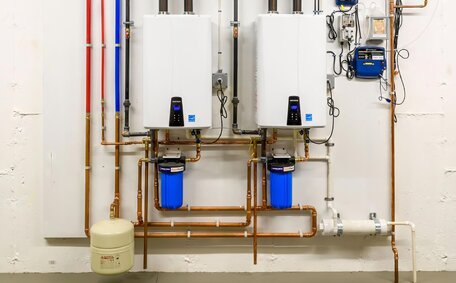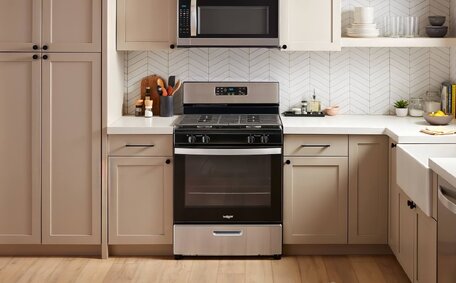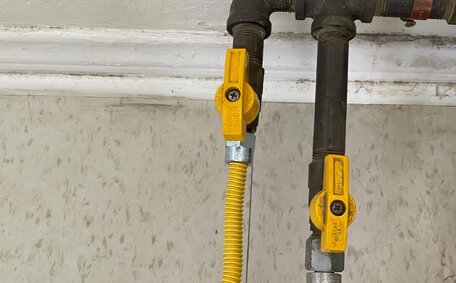
How Hard Water Hurts Hot Water Heaters
Hard water leaves mineral deposits in heaters, pipes and tanks. This limescale reduces efficiency, lifespan and hot water availability. Contact us for affordable water softening solutions.
Read MoreThere are several key signs that indicate your drain is severely blocked and requires immediate attention:
A blocked drain constitutes an emergency if water starts flooding out of drains or pipes burst. Pressure buildup from a severe blockage can result in significant property damage. If you experience any signs of severe blockage:
Using sinks or flushing toilets during a major blockage will exacerbate the problem. Getting a professional emergency plumber to the site promptly is crucial to clear the drain, assess damage, and prevent health hazards from sewage backflow.
There are a few key indicators that a drain blockage has become severe and requires urgent professional assistance:
Stagnant water near drains signals a near-complete blockage, disrupting normal water flow. In this case, it’s essential to call for emergency intervention without delay.
Early detection of a blockage can save your entire home from subsequent damage. Witnessing gradual water pooling or persistent odours should prompt an immediate call to an emergency plumber to minimise further issues or structural damage.
While DIY drain clearing may seem straightforward, it can worsen the situation without appropriate equipment. Contact a professional emergency plumber without delay in these situations:
While baking soda, vinegar, and store-bought drain cleaners might seem benign, excessive use can damage pipes. That can lead to leaks, corrosion and even pipe bursts over time.
A blocked sewer line with stubborn blockages necessitates heavy-duty equipment such as augers, exclusive to qualified emergency plumbers. If home remedies do not clear the obstruction, it’s prudent to contact a professional plumber promptly to avoid increasing repair costs.
If you discover a blockage, take the following steps while waiting for the emergency plumber:
Take photos of any water damage or leaks.
Maintaining good drainage habits is key to preventing clogs and blockages. Here are some simple habits you can build into your routine:
It’s important to ensure only appropriate waste is put down toilets, and by keeping other debris out, you can significantly reduce the risk of major clogs. Contact a plumber right away if you experience persistent sluggish drainage.
Here is a simple yet effective monthly regimen to help keep drains free-flowing:
Vinegar’s acidity breaks down sludge, while baking soda’s grit cleans the pipes. This regular regime helps to stave off organic matter buildup. This practice is particularly advantageous for dislodging materials that might collect in pipes during periods of heavy use, such as holidays.
This at-home cleaning method preserves pipe integrity, unlike potentially corrosive commercial chemical cleaners. Over time, it will keep water flowing freely down drains and prevent any major clogging issues.
Seek a licenced plumber’s professional assistance immediately if DIY attempts fail to alleviate the blockage. A "Plunger" can dislodge minor sink clogs, but is ineffective for serious main line back-ups requiring a snake or pressurised water jet.
Securing professional plumbing services helps prevent common issues like flooding and sewage contamination. If water remains stagnant or toilets are still clogged after plunging, promptly call an emergency plumber such as Picnic Point Plumbing.
Our skilled team uses advanced equipment to locate stubborn blockages precisely. We also ensure any broken pipes or fittings are repaired after clearing the lines. Relying further on makeshift, do-it-yourself fixes can risk cracked pipes or corroded plumbing.
Legally, only licenced professionals are authorised to excavate outdoor drains. Attempting to yourself expose pipes leading to the main sewer can cause environmental hazards if soil gets contaminated by sewage overflow. Our experts adhere strictly to safe practises.
For swift and tailored solutions, trust the certified experts at Picnic Point Plumbing. We offer emergency plumbing assistance 24/7and always prioritise restoring functionality and preventing damage to your Plumbing system.
Selecting a high-quality plumber should involve checking their credentials and traits.
A dependable plumber ought to offer clear information regarding their licencing, insurance, fees, and experience. They should also offer guaranteed workmanship and follow-up services.
Expertise - Look for plumbers licenced with the state plumbing board, indicating they have passed examinations on building codes and safety practises. Factory-trained plumbers show extensive product knowledge.
Professionalism entails the plumber arriving punctually, dressed in a uniform, safeguarding workspaces, and cleaning up afterwards.
Choose a reliable plumber available round-the-clock for emergency calls. Check reviews to confirm they regularly deliver safe, high-quality work and stand behind it with warranties.
At Picnic Point Plumbing, we pride ourselves on technicians who display trustworthiness through guaranteed work and transparency. We maintain professionalism via prompt arrival and protection of your property while onsite. As a family business serving the community for over 30 years, we have proven our unwavering reliability 24/7.
Our factory certifications and state licences affirm our comprehensive expertise.
Before engaging plumbing services, consider asking these important questions:
Reputable plumbers should readily answer questions about licencing, insurance, and experience. Confirm they guarantee their work and offer ongoing drain maintenance plans. Understanding their full range of services and fees for your area helps determine if they are the right fit to solve drain issues or handle plumbing emergencies when needed.
At Picnic Point Plumbing, we welcome any inquiries before booking as we stand behind our team’s expertise. Our family business has served the Sydney suburbs for over 30 years. Learn more about us by calling 1300 349 338, where we provide 24/7 support.
Hard water leaves mineral deposits in heaters, pipes and tanks. This limescale reduces efficiency, lifespan and hot water availability. Contact us for affordable water softening solutions.
Read MoreIt’s important to routinely check your gas appliances for any issues. Signs of problems include gas leaks, strange sounds, odd smells and more. Have a professional inspect your gas appliances annually and service them regularly for safety.
Read MoreUpgrading your gas meter is a simple process completed by registered technicians. It involves disconnecting your gas supply for 15 minutes to swap the old meter for a new digital smart meter. The upgrade is free and improves accuracy.
Read MorePicnic Point, 2213 NSW
We will call back as soon as possible.




